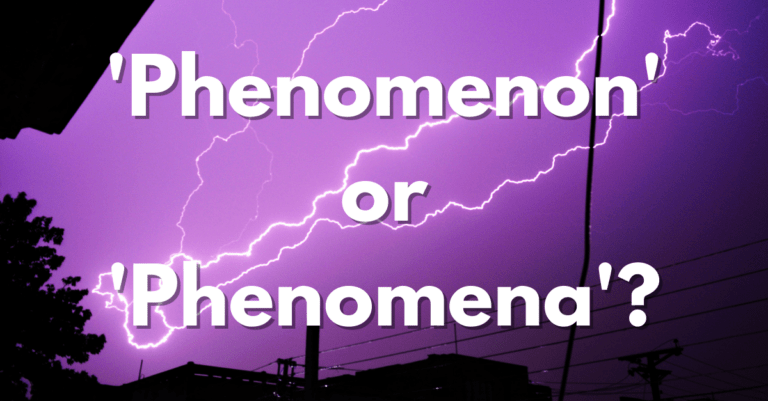If you watched the children’s program Sesame Street growing up, you probably recognized the little bit I sang earlier. “Phenomenon, do do do do do.” Well, it turns out, I was remembering it wrong. In my memory, they were saying “phenomena,” but when I watched the clip on YouTube while I was working on this article, I realized they were saying a nonsense word: “manamanah.” Still, whenever I heard the word “phenomena,” I think of that Sesame Street skit, and I’m nearly certain I’ve heard other people refer to it too. And if you need a good laugh, the video is still funny after all these years.
Either way, “phenomena” and “manamanah” are fun words to say. I actually plan to talk with the Savvy Psychologist in a couple of months about why some words sound so much more pleasant than others, but for now, I’ll just help you remember the spellings of “phenomena” and “phenomenon” because they’re easy words to confuse.
Today, “phenomenon” means “a fact or a thing that happens,” and we usually use it to describe something extraordinary or at least unusual. For example,
Ball lightning is one phenomenon I’ve never seen.”
“Phenomenon” comes to English from Greek through Latin. According to Etymonline, in Greek the word meant “that which is seen or appears,” so essentially the same thing it means today.
The singular is ‘phenomenon.’ The plural is ‘phenomena.’
Its meaning hasn’t changed, and you still make it plural like you make Greek words plural. The plural is “phenomena.”
It’s just like another word that came to English directly from Greek: “criterion.” That’s the singular form—“criterion”— just like “phenomenon” is singular, and it’s plural is “criteria,” which ends with an A just like the plural “phenomena.”
He outlined all the criteria they were going to use to make their selection.
There are more strange phenomena on earth than you can possibly imagine.
Quick and Dirty Tip: To help you remember that “phenomenon” is the singular form of the word, remember that the singular form has an O near the end—in that “non” syllable—just like the word “one.” One. Singular.
Mignon Fogarty is Grammar Girl and the founder of Quick and Dirty Tips. Check out her New York Times bestseller, “Grammar Girl’s Quick and Dirty Tips for Better Writing.”




